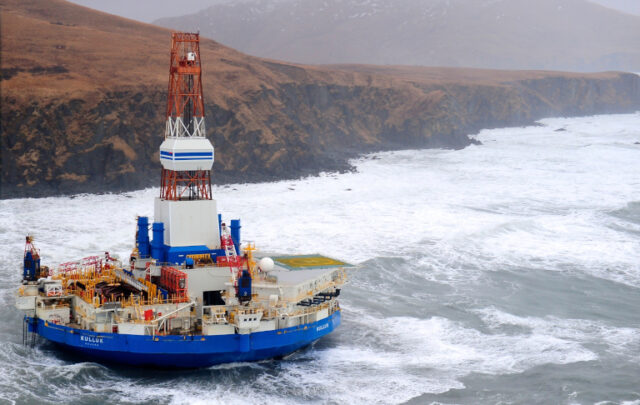* Bush Advisor Matt Simmons Who Advised Cheney’s Energy Task Force Confirms Peak Oil is Major Concern of Bush Administration
* Peak Oil Symptoms More Apparent
* Recoverable Reserves May Be Less Than Hoped
* Natural Gas Shortages May Appear in US This Year
* Hydrogen Vastly Overrated and Not Likely to Offer Solution
Research presented on May 26th and 27th at the French Institute for Petroleum (IFP) by a wide variety of experts from varying and often competitive perspectives disclosed that, in the year since the first conference of the Association for the Study of Peak Oil (ASPO) supply, constraints have worsened and the realities of energy depletion are becoming more apparent. A year of violent political history centered on oil and ever-more unforgiving production results have begun to force reluctant political and economic acknowledgement of Peak Oi’s threat to civilization. Yet ASPO’s founder, Professor Colin Campbell, and his colleagues, retired TotalFinaElf Exploration Manager, Jean Laherrère, and Physics Professor, Kjell Aleklett, have good reason to be pleased with the second-ever ASPO conference. Two hundred people from more than twenty countries attended this year, doubling attendance for the inaugural event held last May in Uppsala, Sweden. In an acknowledgement of Peak Oi’s penetration of official consciousness, the event was partially subsidized by the French Institute for Petroleum, the oil services firm Schlumberger, and the French oil giant, Total. The fact that it was held at a government institution was, according to Campbell, evidence of the fact that Peak Oil can no longer be completely ignored, even by politicians.
Olivier Appert, Chairman of the IFP, bluntly acknowledged that many oil experts have concluded that world oil depletion is between five and ten per cent per year and that 60 Million barrels per day (Mbpd) of new capacity is needed to meet demand. On that basis he concluded in his opening remarks, “It is timely to reopen the debate.” Appert however told the audience that he was an optimist basically because he predicted that new technologies would produce new discoveries and better recovery in the future.
But quiet, official support of the conference fell far short of the political and economic mobilization the organizers believe necessary to respond to a crisis that might start grinding national economies to a halt and causing massive dislocations in short order. As one conference organizer told FTW, “The fact that several governments have asked to be kept ‘fully informed,’ or that the French government allows us to use their facilities, or that major oil companies and automakers like Daimler-Chrysler come to make presentations is a way of listening closely to what we are doing without having to publicly accept what we are saying. The political and economic ramifications of that are too drastic from their perspectives, but each hour of delay only assures that the eventual crisis will be worse once it has been acknowledged.”
IFP Chairman Appert’s optimism was belied by experts like Laherrère, whose brutally honest graphs and plots not only mirror the truth of declining discovery and production but also establish scientifically that there are no more major significant reserves to be found. Other experts established definitively that wildly exaggerated hopes for polar or deep sea discoveries, or tar sands production are both unfounded and dangerously deceptive because of the excessive production costs and the investment required to develop what will likely prove to be disappointing yields.
In the end, the most realistic and integrated analyses were delivered by political scientist and author Michael Klare and Professor Kenneth Deffeyes of Princeton, a one-time colleague of the late M. King Hubbert, whose Hubbert Curve predicted today’s events with startling accuracy some six decades ago. These two conference presenters gave integrated presentations incorporating real-world current events and showed clearly that Peak Oil is here now.





